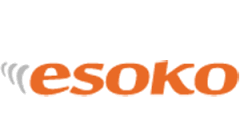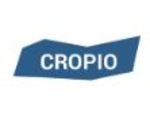Description

Marketo

Esoko
Comprehensive Overview: Marketo vs Esoko
Marketo and Esoko serve different industries and purposes, so we'll provide an overview of each with respect to their primary functions, target markets, market share, user base, and key differentiators.
Marketo
a) Primary Functions and Target Markets:
- Primary Functions: Marketo is a leading marketing automation platform. Its core functions include email marketing, lead management, consumer marketing, customer base marketing, and mobile marketing. It provides tools for campaign management, personalization, and analytics, helping businesses engage with their audiences effectively.
- Target Markets: Marketo primarily targets B2B and B2C enterprises looking to enhance their marketing strategies. It serves diverse industries such as technology, financial services, healthcare, manufacturing, and more. Large and mid-sized businesses are its core clientele, but it also caters to smaller businesses that require robust marketing automation solutions.
b) Market Share and User Base:
Marketo, now owned by Adobe, is a significant player in the marketing automation space. Its acquisition by Adobe has expanded its reach, integrating it into the Adobe Experience Cloud suite. Marketo has a substantial market share among top marketing automation platforms, competing with the likes of HubSpot, Salesforce Pardot, and Oracle Eloqua. While exact user base numbers fluctuate, Marketo serves thousands of companies globally with a strong presence in North America and growing in other regions.
c) Key Differentiating Factors:
- Integration with Adobe Suite: Post-acquisition, Marketo's integration with Adobe's products like Analytics, Creative Cloud, and Experience Manager is a strong differentiator.
- Focus on Engagement Marketing: Marketo emphasizes engagement marketing, helping companies create personalized, authentic interactions across channels.
- Scalability: Marketo is highly scalable, suitable for large enterprises with complex marketing needs.
Esoko
a) Primary Functions and Target Markets:
- Primary Functions: Esoko is a digital platform focused on agriculture. It provides services such as agricultural advisory, market information systems, and data collection tools. The platform aims to improve market access, increase transparency in pricing, and enhance agricultural productivity by delivering vital information to farmers via mobile technology.
- Target Markets: Esoko primarily targets farmers, agricultural extension workers, NGOs, and government agencies across Africa. The platform is designed to empower smallholder farmers and agricultural businesses by providing them with the necessary information to make better market decisions.
b) Market Share and User Base:
Esoko operates primarily in Africa, with a focus on countries like Ghana, Kenya, Malawi, and others. As a niche player in agricultural technology, it competes with other agri-tech startups and services aiming to digitize agriculture in emerging markets. Its user base includes a mix of smallholder farmers and larger agricultural stakeholders, though precise numbers are less documented compared to broader tech markets.
c) Key Differentiating Factors:
- Focus on Agriculture: Esoko is specialized in agriculture, particularly in providing market information and advisory services through mobile technology.
- Impact-Driven Model: The company is positioned as a social enterprise, aiming to have a direct impact on the livelihoods of farmers in developing regions.
- Localization: Esoko's services are tailored to the local contexts of African countries, understanding rural challenges and needs directly.
Comparative Overview
Marketo and Esoko have fundamentally different missions and markets, making direct comparisons difficult:
- Industry Focus: Marketo serves the broad corporate marketing sector, whereas Esoko focuses on agricultural technology.
- Geographical Focus: Marketo has a global reach with a strong presence in developed markets; Esoko concentrates on the agricultural sectors of African countries.
- Functional Scope: Marketo's engagement revolves around complex marketing automation, while Esoko is about information dissemination and connectivity in agriculture.
Overall, while both aim to enhance market operations, their approaches, target audiences, and geographical focus set them apart in terms of application and industry impact.
Contact Info

Year founded :
Not Available
Not Available
Not Available
India
Not Available

Year founded :
Not Available
+257 22 28 03 20
Not Available
Burundi
http://www.linkedin.com/company/esokoshop
Feature Similarity Breakdown: Marketo, Esoko
Marketo and Esoko are both platforms that serve different primary purposes, with Marketo being a comprehensive marketing automation platform and Esoko focusing on agricultural information and communication. However, there could be some overlapping features, especially in the context of communication and data management. Let's explore their similarities and differences:
a) Core Features in Common
-
Communication Tools:
- Both platforms offer robust communication features. Marketo focuses on email marketing and customer engagement, while Esoko provides tools for SMS-based communication to reach farmers and other stakeholders.
-
Data Management and Analytics:
- Both Marketo and Esoko provide data management solutions. Marketo deals with customer data for marketing purposes, offering analytics to track campaign performance. Esoko, on the other hand, manages agricultural data to support decision-making by farmers and other users, also offering analytics to understand the data trends.
-
User Segmentation:
- Both platforms allow for segmentation based on user data. Marketo does this for targeting marketing campaigns, whereas Esoko could segment users for different kinds of agricultural content distribution.
b) User Interface Comparison
-
Marketo:
- Marketo’s UI is designed for marketing professionals, with dashboards that focus on campaign management, analytics, and customer interactions. It typically presents a complex but feature-rich interface that offers deep customization for seasoned users.
-
Esoko:
- Esoko’s UI is oriented towards simplicity and accessibility, catering to users who may not have extensive technical backgrounds. This includes easy navigation for accessing market prices, weather forecasts, and sending/receiving SMS communications.
c) Unique Features
-
Marketo Unique Features:
- Lead Management: Advanced lead scoring, nurturing, and lifecycle management.
- Multichannel Campaign Management: Supports a range of digital marketing campaigns beyond email, including social media, web personalization, and mobile marketing.
- AI and Personalization: Offers AI-driven insights and recommendations to personalize customer experiences.
-
Esoko Unique Features:
- Agricultural Data Services: Provides farmers with market price information, weather forecasts, and agricultural tips via mobile technology.
- Mobile Money Integration: Facilitates mobile payments and transactions for agricultural commerce.
- Community Engagement Tools: Offers tools to build and engage with farming communities, enabling knowledge sharing and networking.
In conclusion, while there are some overlaps in communication and data management, the primary differences arise from their industry focuses, with Marketo being tailored for marketing automation and Esoko for agricultural information dissemination. The distinct user interfaces reflect these focuses, offering tools and layouts that cater to their respective audiences.
Features

Not Available

Not Available
Best Fit Use Cases: Marketo, Esoko
Marketo and Esoko are distinct platforms serving unique purposes and target markets. Let's break down their best fit use cases:
Marketo
a) For what types of businesses or projects is Marketo the best choice?
Marketo is a leading marketing automation platform that primarily caters to:
-
Mid to Large Enterprises: Businesses that have a substantial customer base and require robust marketing automation solutions can benefit from Marketo's advanced capabilities. It is well-suited for companies that need to manage and integrate marketing activities across multiple channels and platforms.
-
B2B Companies: Marketo is particularly strong in B2B scenarios due to its sophisticated lead nurturing, account-based marketing (ABM), and analytics features. It helps organizations with long sales cycles engage potential leads effectively.
-
Industries with Complex Customer Journeys: Sectors such as technology, finance, and healthcare where the customer journey involves multiple touchpoints, can leverage Marketo’s features to optimize and personalize marketing strategies.
-
Marketing Teams Focused on Personalization: Companies that aim to deliver personalized content at scale will find Marketo’s capabilities in segmentation, email marketing, and dynamic content particularly valuable.
d) How does Marketo cater to different industry verticals or company sizes?
Marketo offers industry-specific solutions and customization options, enabling different verticals such as tech, education, and retail to deploy marketing strategies aligned with their unique requirements. It provides scalability, making it adaptable to various company sizes, although its comprehensive feature set makes it best-suited to larger organizations with the technical capacity to leverage its full potential.
Esoko
b) In what scenarios would Esoko be the preferred option?
Esoko is a technology platform that supports agriculture-related projects and initiatives, focusing on:
-
Agricultural Organizations: NGOs, governments, and agribusinesses looking to support smallholder farmers and engage with rural communities find Esoko beneficial. It provides tools for data collection, communication, and information dissemination.
-
Projects Focused on Rural Development: Programs that aim to improve rural livelihoods by delivering essential agricultural information through mobile and web platforms can utilize Esoko effectively.
-
Market Access Initiatives: Esoko helps farmers access market prices, weather forecasts, and agricultural tips, which are crucial for improving market efficiencies and farmer incomes.
-
Data Collection and Survey Projects: Organizations that need reliable tools for field data collection, monitoring, and evaluation in agricultural sectors can rely on Esoko’s survey and analytics capabilities.
d) How does Esoko cater to different industry verticals or company sizes?
Esoko is tailored specifically for agriculture and rural development sectors. Its scalability and modularity accommodate a wide range of users from small community-driven projects to large national programs. By focusing on mobile connectivity in rural areas, Esoko helps bridge the information gap between urban and rural actors, making it suitable for smaller organizations or large-scale operations targeting agricultural stakeholders.
In summary, Marketo serves sophisticated marketing needs, especially in B2B settings, while Esoko provides critical support for agriculture and rural development projects. Both platforms address their specific industry verticals and adapt to the scales of operations they are designed to serve.
Pricing

Pricing Not Available

Pricing Not Available
Metrics History
Metrics History
Comparing teamSize across companies
Conclusion & Final Verdict: Marketo vs Esoko
To determine which product offers the best overall value between Marketo and Esoko, it's essential to weigh the features, pricing, target audience, and unique advantages of each platform. Here's a conclusion and final verdict based on a comparative analysis:
a) Best Overall Value
Marketo tends to offer better overall value for medium to large enterprises focused on lead generation, customer engagement, and marketing automation due to its comprehensive suite of features that include advanced analytics, robust email marketing capabilities, and seamless integration with CRM systems like Salesforce. However, its cost may be prohibitive for smaller businesses or those with limited marketing budgets.
Esoko, on the other hand, is more valuable for organizations within the agricultural sector, specifically in developing regions. It provides significant value through its capabilities in market information dissemination, agricultural data management, and communication with rural farmers via mobile technology. It's especially beneficial for NGOs, governmental bodies, and businesses aiming to enhance agricultural productivity and rural development.
b) Pros and Cons
Marketo:
- Pros:
- Advanced features for marketing automation and customer engagement.
- Strong analytics and reporting capabilities.
- Excellent integration with other enterprise-level CRMs.
- Scalable for growing businesses.
- Cons:
- High cost could be a barrier for small businesses.
- Steep learning curve; may require skilled personnel to manage the platform.
- Complexity might be unnecessary for businesses with straightforward marketing needs.
Esoko:
- Pros:
- Tailored solutions for the agriculture sector and emerging markets.
- Facilitates communication in rural areas, including SMS and voice messaging.
- Valuable data analytics for farmers and agricultural stakeholders.
- Generally more affordable and easier to adopt in its target regions.
- Cons:
- Limited outside of its niche focus; not suitable for businesses in other industries.
- May lack the sophisticated marketing tools found in platforms like Marketo.
- Dependency on local mobile network infrastructures could impact functionality.
c) Recommendations
-
For enterprises in various industries (excluding agriculture) that desire robust marketing capabilities: Consider Marketo if the budget allows and marketing complexity justifies its advanced features.
-
For organizations specifically in the agricultural sector and those working in rural, developing regions: Esoko is the ideal choice due to its specialized tools and focus on agricultural communication and data.
-
Hybrid Needs: If an organization requires features from both (such as an agricultural NGO needing advanced marketing capabilities), consider using a combination of these platforms where feasible or exploring integrations with other third-party solutions.
When deciding between Marketo and Esoko, users should carefully assess their industry's specific needs, budget, and desired outcomes to ensure the chosen platform aligns with their strategic goals.
Add to compare
Add similar companies



